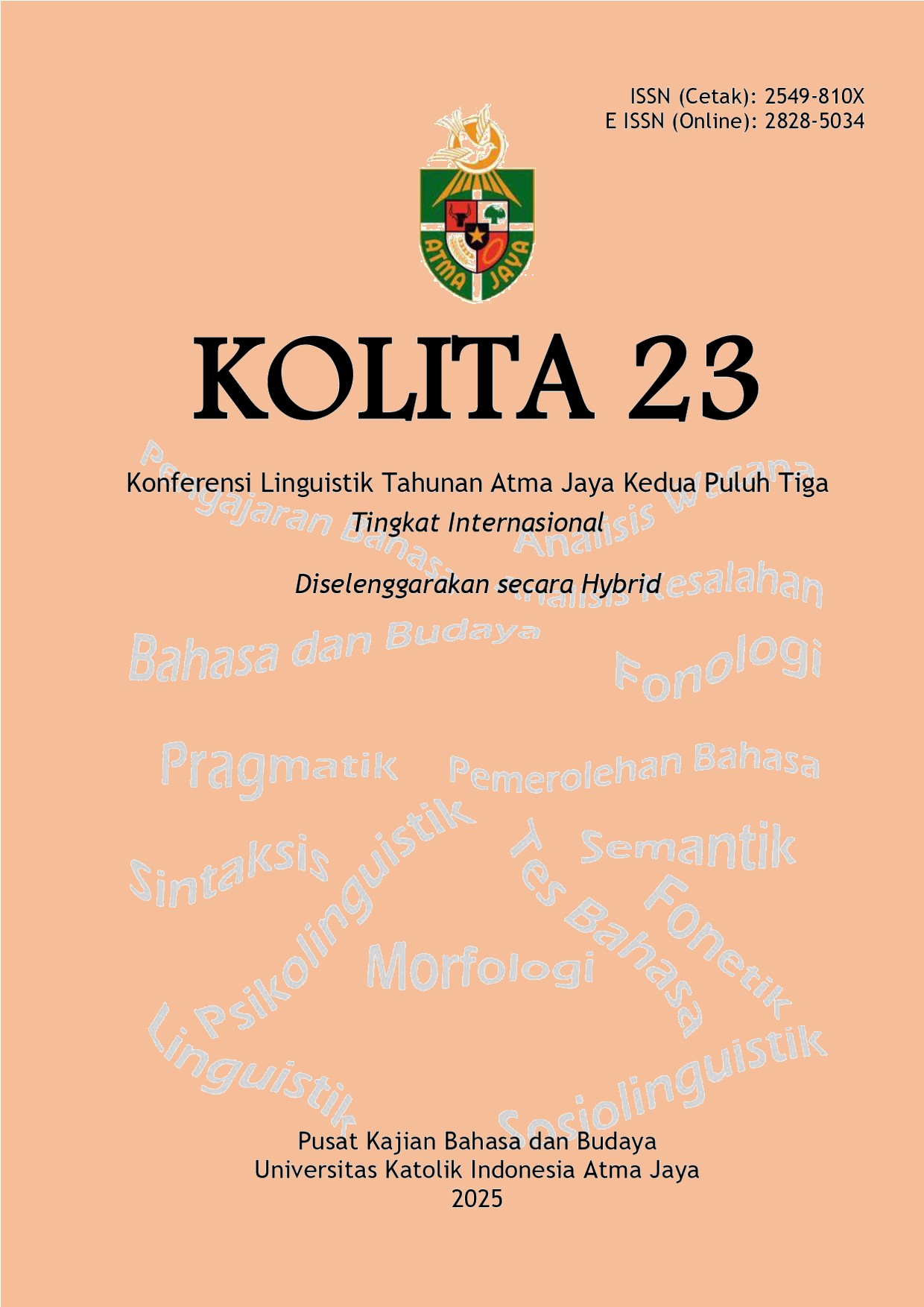GOOGLE TRANSLATE VS. HUMAN TRANSLATOR IN TRANSLATING INDONESIAN LITERARY TEXT OF MUNA MASYARI’S SHORT STORY KETUK LUMPANG INTO ENGLISH
DOI:
https://doi.org/10.25170/kolita.v23i23.7153Keywords:
Google Translate, human translator, Indonesian short story, clauses, main ideaAbstract
Translators should know both the advantages and disadvantages of using machine translation. This research aims (1) to investigate whether or not the result of the translation works carried out by Google Translate and that of human translator in translating Indonesian short story into English will be different, and (2) to investigate whether or not the shift of sentences between both of them will cause the shift of the main idea of the paragraph. In comparing the results, the researcher focuses on the shift of sentences and their influence on the main idea of the paragraphs. The research method used is descriptive-qualitative method proposed by Enio Cipani and comparative study by Robert L Stake. Meanwhile, for the shift of sentences, the researcher uses Jim Miller's theory of finite and non-finite clauses. Related to translation theory, J.C Catford’s statement, i.e. translation may occur between sentences, clauses, groups, words and (though rarely) morphemes, and Mona Baker’s view, i.e. to find the national category which is regularly and uniformly expressed in all languages is difficult, are considered. Related to the data, the researcher chooses one of the short stories on the page of Dalang Publishing, an American publisher located in San Mateo, California, USA, i.e. Muna Masyari’ short story Ketuk Lumpang which was translated by the researcher himself and then being edited by an English native editor becoming Requiem for a Wedding. The findings of this research are that the Indonesian short story which originally had 1,501 words after being translated into English by Google Translate became 1,937 words. Meanwhile, a human translator translated it into 2,089 words. Regarding the number of sentences, the sentences in the Indonesian short story, whose total number is 169 sentences, and after being translated by Google Translate the number is just the same. However, the human translator translated it becoming 155 sentences. The shifts of sentences (original short story >> Google Translate >> Human translator) can be (1) of a sentence becoming a sentence, (2) of a sentence becoming two sentences, and (3) of two sentences becoming a sentence. Even though the number of sentences change after being translated by human translator into English, the main ideas of the paragraph do not change. Such a matter can be checked by back-translation. The shifts of sentence happen due to the nativelikeness both linguistically and culturally of the target text. Thus, it can be concluded that concerning the main idea of paragraphs, the work of Google Translate was linguistically and culturally different from the human translator’s in translating a literary work from Indonesian into English. However, concerning human translator’s work, the main ideas of the original or Indonesian version do not change.






